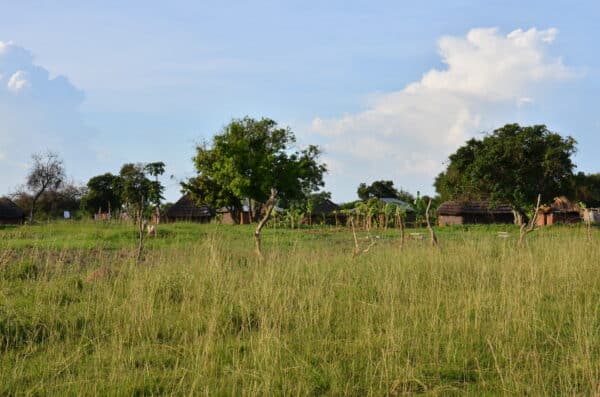
This article was originally published in the Annual Report 2021 of Avocats Sans Frontières.
In recent years, numerous and continued conflicts about land use and ownership in the Acholi subregion have led to strong debate among the Ugandan population. But the discussions surrounding this issue have too often omitted to include it in the broader debate around transitional justice.
These land conflicts mostly find their source in the aftermath of the war that took place between the Ugandan Government and the rebels of the Lord’s Resistance Army (LRA) from 1987 until the 2006 ceasefire. During that period, the rebels of the LRA targeted civilians and waged attacks on schools, public places and communities. This led to massive displacement of local populations into refugee camps called Internally Displaced People’s camps (IDPs). The extensive displacement and the death of elders during that period has divested local communities of land ownerships.
Access to land plays a crucial role in recovering from the effects of such conflicts but there is a true need to establish a linkage between land rights and the promotion of transitional justice objectives such as restitution. The 2019 Uganda National Transitional Justice Policy acknowledges the need to mitigate land conflicts in conflict-affected communities either individually or collectively.
ASF undertook research on access to land rights and transitional justice in Northern Uganda to establish the nature of justice paths undertaken by people in the Acholi sub-region in reclaiming their land rights. Using a purely qualitative methodology, the research established that victims of land conflicts use either statutory or traditional mechanisms to pursue justice but that they are unable to address land disputes satisfactorily and amicably. In many cases, access to justice and judicial outcomes are dependent on the individual’s social status. Women and youth find it harder to obtain satisfactory remedies due to their higher degree of vulnerability.
ASF advocates for a comprehensive land restitution strategy to be included in the broader transitional justice process. This includes the pillars of transitional justice processes: acknowledgment of the wrong suffered, truth-telling, investigation, and documentation. It is crucial to intensify efforts to ensure that land rights are fully respected, enforced, and restored in the return communities. In addition, ASF calls for the Government of Uganda to redefine processes of land acquisition for multinational companies and investors in ways that are transparent, accountable, and involve local communities to reduce mistrust and help build confidence in ongoing development initiatives in the region.



